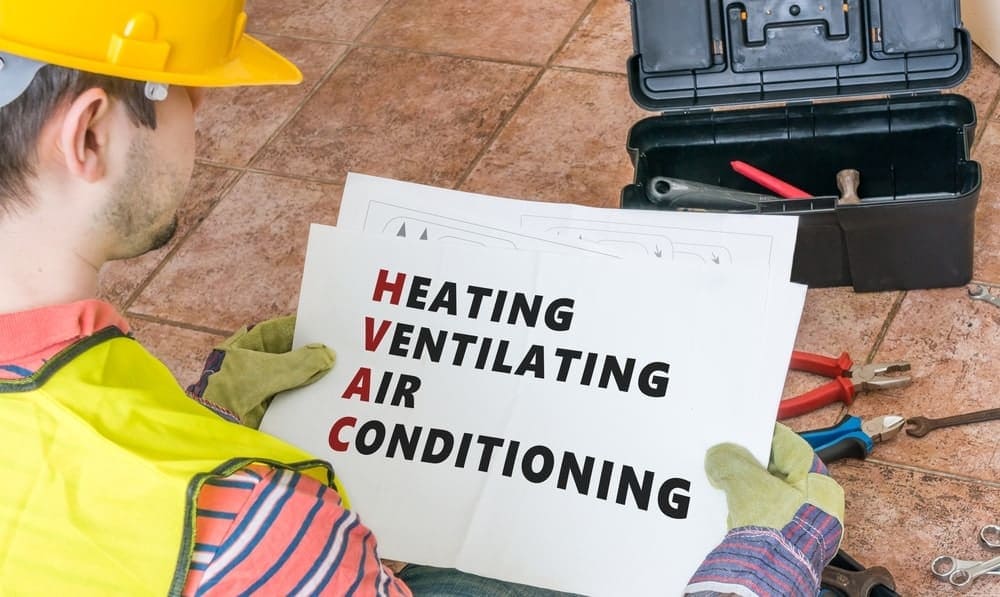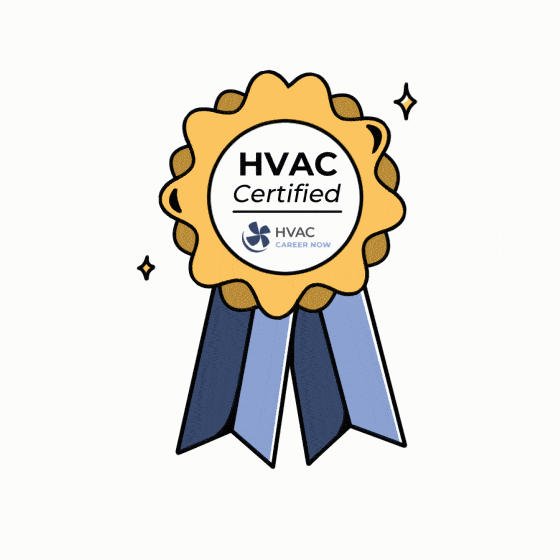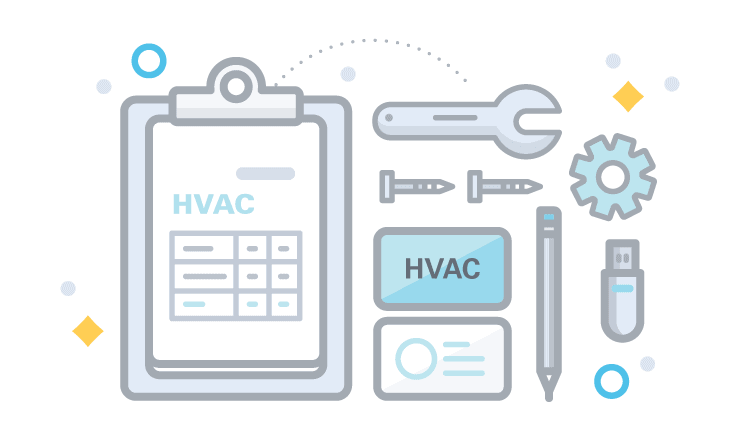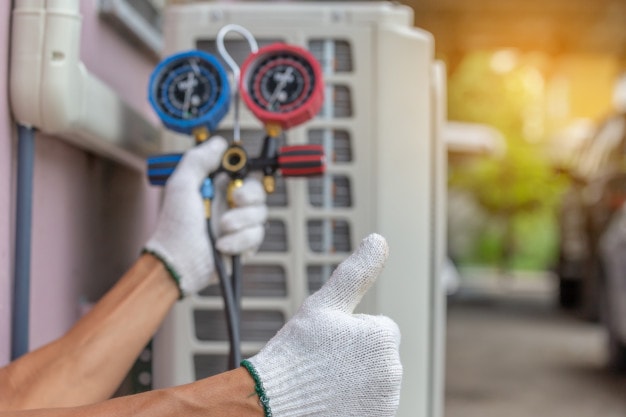Working in the HVAC industry can be completely rewarding.
Of course, some jobs require a degree while others only ask for a certificate.
In this article, we’ll take you through what each one entails and guide you on which one you should choose.

TL;DR: HVAC Degree vs Certificate

HVAC Degree

HVAC Certificate

Pros
HVAC Degree
Higher salary
High demand
More job opportunities
Run an HVAC company
HVAC Certificate
Get a job faster
Improved credibility
Quality, reliable work
Knowledge linked to skills
Cons
HVAC Degree
Costs more
Takes longer to achieve
HVAC Certificate
Lower salary bracket
Less work opportunities
Best For
HVAC Degree
What use/person is this product best for based on the variables?
HVAC Certificate
Becoming a licensed technician for installations, repairs, and maintenance
What is an HVAC Degree?
An HVAC degree is a vocational study that provides knowledge of how to regulate temperature, humidity, clean air, and more within residential, commercial, industrial, and corporate environments. Students learn how components and systems function together before specializing in a specific field.
While they’ll learn the basics of heating, ventilation, and air conditioning in the first year, further study will break into modules that focus on the intended career path. For instance, an HVAC degree student could aim towards running an AC company, managing a maintenance team, supplying coolants or parts, or installing motor controls. They can also expand into research and development to improve technology.
Those who complete the course receive a bachelor’s degree of science in the HVAC industry. Students can join organizations and associations for professionals while there are high-paying jobs related to the services.
You might not find a course that’s completely online, but it could have a hybrid of online and campus work. The crucial aspect is obtaining hands-on experience, as occupations require many employees to do physical work in the arena.

Types of HVAC Degrees and What You’ll Learn
HVAC degrees are available in two formats, depending on how long you want to study and the job level you want to attain. We’re going to quickly break these down for you so that you can see what’s involved.
Associate Degrees in HVAC
It takes about two years to complete this degree. However, it may take longer if some modules are extended or for practical experience. You can pursue the studies in a community or vocational college.
Those who pass this level of education generally start as HVAC technicians in a specific field. You can use this degree as a gateway into other advanced studies or certificates.
Here’s what you’ll learn:
- Electrical applications
- Metal fabrication
- Technical physics
- Heat pumps
- Refrigeration basics
- Maintenance and system design
- Commercial and residential HVAC systems

Bachelor’s Degrees in HVAC Engineering Technology
The BSc in HVAC is more advanced and will take four years to complete. It’s the most comprehensive educational level in the industry, and you may be able to finish it sooner if you have the appropriate college credits.
Those who complete this degree can also enter a career path as a technician but can advance their vocation towards a manager or business owner. They are more likely to win massive corporate and government contracts once they build enough experience.
Here’s a breakdown of what the degree may entail:
- Same modules as the associate degree
- Control theory
- Energy analysis
- Contracts and SLAs
- Hydronic design
- HVAC business basics
- Advanced residential, industrial, and commercial refrigeration
- HVAC manufacturing
What is an HVAC Certificate?
HVAC certificates and diplomas provide the shortest, most basic route to becoming a technician. It has a narrow focus on a specific field, and may even be provided by the employer to help you advance your career. You won’t be able to start your own business, but you’ll improve service levels in several HVAC sectors.
Students learn fundamental HVAC aspects that are necessary to start as a technician. For instance, it covers temperature control, equipment construction and design, maintenance, and installation. These are the people air conditioner owners call when their devices fail and need them repaired, or when they purchased new units and need them installed.

If the students meet specific criteria, the certificate qualifies them to enter into an ICC examination, specifically the EPA Section 608 exam. Passing it means they have a license to practice as an HVAC technician with the salary that goes with it.
Types of HVAC Certifications and What You’ll Learn
There are several HVAC certificates offered by numerous educational institutes, depending on the focus of study or occupational goal. We’re going to cover the most popular one that leads the way to become a professional technician.
Heating, Ventilation, Air-Conditioning and Refrigeration Certificate
This certificate will train technicians to repair, install, and maintain air conditioners and parts in residential and commercial properties. It can be completed in as quickly as six months. Students will be able to assess and diagnose problems while recommending the best solution.
Once completed, the student may take an exam to obtain a license to work in the industrial sector. Here’s a list of topics it includes:
- Refrigeration basics
- Electricity basics
- HVAC controls
- Residential heating
- Commercial refrigeration

Relevant Characteristics Between an HVAC Degree and HVAC Certificate
Here’s a quick comparison breakdown of what each one consists of:
HVAC Degree vs. HVAC Certificate
Compare by tapping or clicking below!

Cost
HVAC Degree
$60,000
HVAC Certificate
Up to $9,000
Length of Time to Complete
HVAC Degree
Four years
HVAC Certificate
Six months or longer
Requirements
HVAC Degree
Associate Degree in HVAC/R technology
HVAC Certificate
High School Diploma with chemistry and physics
Average Salary Potential
HVAC Degree
$70,000
HVAC Certificate
$30,000
Similarities and Differences
Now that we’ve shown you an outline of the HVAC degrees and certificates, it’s time to look at how they differ and what they have in common. We’ll study each characteristic above so that you have a complete view.
HVAC Degree and Certificate Differences
Let’s begin by looking at the most obvious differences between the two and why there’s such a large gap between them.
Cost
The BSc HVAC degree is by far the most expensive option, but the reason is clear. You’ll spend much more time learning advanced techniques and systems that’ll land you a higher-paying job. You’re looking at about $60,000 for the degree compared to up to about $9,000 for the technician certificate.
Time to Complete
A degree will take you about four years to complete while a certificate is generally six months or higher. You’ll study only the basics that a technician is required to know with the certificate, with the course being available online. You’ll have to attend a college campus for the degree, as you need hands-on experience.

Requirements
As long as you have a High School Diploma that covers chemistry and physics, you’ll be ready to take on the technician certificate. The BSc degree requires more advanced knowledge, and you’ll need to spend two years attaining the Associate Degree first. However, it’ll be time well-spent, as you can run your own HVAC company when you’re done.
Potential Salary
Since you’ll learn the basics of running an HVAC business, you can easily earn up to $70,000 for a salary if you do it the right way. A technician receives about $30,000 on average, and won’t be able to proceed into a qualified management position without the degree. However, you can try and add other certificates to your name for a slight increase.
Thoughts on Differences
The more you put in, the more you receive. While you’ll pay more and spend more time on the degree, the return on investment is phenomenal when you earn that high salary. You’ll also be more respected in your field when you have that degree behind your name.
HVAC Degree and Certificate Similarities
While there are some blatant differences between HVAC degrees and certificates, the similarities are slightly vaguer. We’ll point them out to you so you can see where they lie.

Modules
You may recognize similar courses in the first year of the degree and the certificate. All the basics are covered, which is essential for any technician to learn. Of course, the degree does expand to further advanced learning down the line.
Career Starting Point
Someone who is studying towards a degree can also start working as a technician. As you’ll need experience before you can land a management position, you’ll begin small and work your way up to the top. The same applies to the certificate; the primary difference is how high up you can go in the corporate chain.
Average Starting Salary
The same applies to the first salaries. You won’t get a degree and walk straight into a $70,000 salary job. While you’ll certainly earn more than the standard technician, you’ll have to work your way up to the top.
Thoughts on Similarities
The similarities mainly focus on the starting point, but the degree definitely takes you further and provides more opportunities than the certificate. You’ll learn the same basics at the start, but the degree takes you deeper into the heart of the HVAC industry.
Advantages of Getting an HVAC Degree

Receiving a degree can be highly beneficial, even if it takes years to complete. Here are some of the advantages of paying so much for it.
Run an HVAC Business
Once you have your degree, you can work your way to owning your own HVAC company. You can manufacture parts, deliver maintenance services, or sign multi-year contracts with top-paying clients. It helps build your reputation, especially when there is a Board of Executives you need to impress.
More Career Opportunities
While a certificate will land you a technician job, you have more opportunities for HVAC careers. Besides being a manager or CEO, you can also install massive components in multistory buildings or become involved in research and development. You might even become involved with the next Moon or Mars mission. It ensures long-term success, no matter which works you walk into.
High Demand
The most significant benefit is that someone with a BSC in HVAC is in high demand. You may even cross over into mechanical engineering for air conditioning systems. With the world looking for innovative ways to save electricity, this aspect is where you could excel if you find yourself in the right position.
More Learning Opportunities
There are some advanced vocational studies related to specific HVAC systems that require an HVAC degree. Some manufacturers develop advanced central air conditioning systems that only approved companies can install or maintain. If you want to reap the benefits of your studies, ensure you lookout for these opportunities.
Summary
Finishing your degree certainly has greater benefits than a certificate when it comes to work, educational opportunities, and a high-paying salary. You’ll need to create a focus for what your end goal is so that you don’t get lost along the way with generalized services. Don’t spread yourself too thin in the beginning and take it steady.
Advantages of Getting an HVAC Certificate
While a degree does look promising, having a technician certificate can also be excellent. Here’s a quick overview of the benefits you can expect.

Faster to Get a Paying Professional Job
Since you’ll only spend six months studying for the certificate, you’ll land a job quicker and start earning a salary much faster. Sure, it won’t pay as much as a degree, but you won’t have to wait four years to begin. You can also advance your skill with other courses linked to your studies.
Quality Work
Technicians deliver high-quality work, no matter what they do. When you need someone to install a new air conditioner, repair a dehumidifier, or move a ceiling fan, they have the knowledge to perform the work safely and to the best of their abilities. You don’t need someone with a degree to complete the task for you.
Improved Credibility
When a company employs qualified technicians, its reputation rises among its customers. The work can be trusted, as the employee will ensure that the job is done right the first time. Of course, it takes experience to build that trust in the long run.
Knowledge Linked to Skills and Field of Work
Those who earn degrees learn so many aspects of HVAC systems and will probably only use a small percentage of it in their field. When you become a technician, your education is directly linked to your work, which grows as you gain experience. You can also obtain more certificates connected to your skills in the workplace.

Summary
As you can see, the certificate offers the quickest and most cost-effective way of starting your career in the HVAC industry. It may not be as financially rewarding as the degree, but at least you can build a reputation and perhaps join a leading company that pays well for your services.
How to Choose Between a Certificate and a Degree
We’re sure our article has made you excited about the certificate and degree, but which one should you choose? Let’s look at a few factors to consider before you pick one.
The Value of Time
If you’re coming fresh out of school with top marks, there’s no reason you can’t aim for a degree. However, not everyone has the luxury of time. If you’ve decided late in life to finally obtain that technician license, you can opt for the certificate instead. Also, it helps to start earning a salary sooner.
What You Can Afford
In the same breath, not everyone will qualify for a study loan or has wealth sitting in their bank account waiting to be spent. If your budget is tight and you’re not keen to save up for the degree, then the certificate is the answer. However, check to see if the government or other institutions aren’t offering bursaries.
The Type of Work
One of the most significant factors is the job you want to do one day. If you’re happy performing installations, repairs, and maintenance, the certificate will do just fine. However, aiming for running a company or winning tenders will require a degree.

How Much Effort Will You Put In
Earning a degree over four years takes hard work. There’s no space for laziness, as you will need to get your hands dirty doing the practicals. Don’t waste your time and money on the degree if you have no intention of giving it your all.
Bottom Line
It can be challenging to decide whether you should aim for an HVAC degree or a certificate. The latter is more rewarding for career paths, salary, and job security, while the latter is easier and more affordable to obtain. At the end of the day, you have to evaluate what work you want to do in the industry and how easy it will be to get there.
People Also Ask
Here are some other common questions regarding HVAC training. Hopefully, these will cover any further questions you have.
Yes, you can. You can become a qualified technician that’s able to install, maintain, and repair HVAC devices and components. You’ll have excellent credibility, and there are many companies out there looking for licensed employees for air conditioners and heaters.
In a sense, it can be. If you’re looking at the big picture and are ambitious, it pays off in the end when you have that high-paying job. There’s a high demand for companies that have staff with degrees. It all depends on how much effort you’re willing to put in and what the market is like when you complete your degree.
